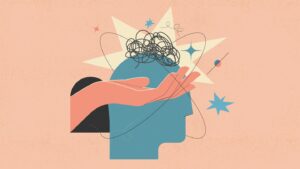In the intricate dance of neurons and neurotransmitters, sometimes, the rhythm goes slightly awry. ADHD, or Attention-Deficit/Hyperactivity Disorder, is a testament to this delicate balance. However, with the right understanding and support, this condition can be navigated skillfully. Dive into our exploration of ADHD therapy, as we unravel the different types, and offer some tips to find the therapy near you.
Contents
What Is The Importance Of ADHD Therapy?
 ADHD (Attention-Deficit/Hyperactivity Disorder) therapy plays a pivotal role in managing the symptoms of the condition and promoting the overall well-being of individuals diagnosed with ADHD. The importance of ADHD therapy can be understood through several key areas:
ADHD (Attention-Deficit/Hyperactivity Disorder) therapy plays a pivotal role in managing the symptoms of the condition and promoting the overall well-being of individuals diagnosed with ADHD. The importance of ADHD therapy can be understood through several key areas:
- Symptom Management
ADHD is characterized by symptoms like inattention, hyperactivity, and impulsivity. Therapy can provide individuals with strategies and tools to manage these symptoms, thereby improving daily functioning.
- Skill Development
Behavioral therapies, especially, focus on imparting skills such as time management, organizational skills, and emotional regulation, which can be challenging areas for individuals with ADHD.
- Emotional Well-being
ADHD often coexists with other mental health disorders like anxiety, depression, or conduct disorders. Therapy can address these co-existing conditions, promoting emotional health and resilience.
- Self-awareness
Through therapy, individuals gain a deeper understanding of their ADHD and its impact. This self-awareness is fundamental in fostering self-acceptance and pinpointing areas that may need more attention or different strategies.
- Strengthening Relationships
ADHD can affect relationships, with misunderstandings arising from the disorder’s symptoms. Family therapy or counseling can help family members, partners, or friends understand the condition better and develop supportive strategies.
- Support and Validation
A therapeutic environment offers a safe space for individuals with ADHD to express their concerns, frustrations, and achievements. This environment offers the validation many individuals seek, knowing that their experiences are heard and understood.
Therefore, ADHD therapy is more than just addressing the core symptoms of the disorder. It offers a holistic approach to help individuals navigate their lives. This will help to ensure that they can harness their potential and live fulfilling lives.
What Are The Different Types Of ADHD Therapy?
 ADHD therapy encompasses a variety of approaches to help individuals manage symptoms and improve overall functioning. Here are some of the prominent types of ADHD therapy:
ADHD therapy encompasses a variety of approaches to help individuals manage symptoms and improve overall functioning. Here are some of the prominent types of ADHD therapy:
Behavioral Therapy
Behavioral therapy is grounded in the principles of behavioral psychology. This approach seeks to modify or change behaviors through a system of rewards and consequences. For instance, a child might earn a reward for finishing homework on time or demonstrating patience. Over time, this reward system reinforces positive behaviors and diminishes problematic ones.
Psychoeducation
Knowledge is empowering. Psychoeducation demystifies ADHD by providing comprehensive information about its symptoms, causes, and management strategies. When individuals and their families understand ADHD, they are better positioned to navigate the challenges it presents. Additionally, being informed combats misconceptions and reduces the stigma associated with the disorder.
Medication Management
Pharmacological treatments, like stimulant or non-stimulant medications, have proven effective for many individuals with ADHD. Regular consultations with a psychiatrist or medical professional ensure that the chosen medication delivers optimal results, with minimal side effects. These professionals can adjust dosages, introduce new medications, or combine treatments to achieve the best outcomes.
Family Therapy
The ripple effects of ADHD often touch all family members. Family therapy recognizes this interconnectedness and aims to create a harmonious, supportive environment. Through sessions, families learn to communicate more effectively, understand each other’s perspectives, and collaboratively tackle ADHD-related challenges.
Neurofeedback (EEG Biofeedback)
Neurofeedback trains individuals to regulate their brain activity. By observing their real-time brain waves on a computer, individuals learn to produce patterns associated with focus and calm. Over multiple sessions, this self-regulation can lead to lasting changes in attention and impulsivity.
Executive Functioning Coaching
For many with ADHD, tasks like planning, organizing, or starting projects can be daunting. Executive functioning coaching targets these challenges. Through structured sessions, individuals learn strategies to manage time, set goals, initiate tasks, and monitor their progress. This approach is particularly useful for adults and older adolescents preparing for higher education or entering the workforce.
Mindfulness and Meditation
Mindfulness teaches individuals to stay present and fully engage with the current moment. For those with ADHD, techniques like meditation can enhance focus, self-awareness, and emotional regulation. Regular practice can reduce impulsivity, hyperactivity, and the stress often accompanying ADHD.
Occupational Therapy
Occupational therapists assist children in refining their motor skills, improving handwriting, and navigating sensory challenges. By introducing tailored activities and exercises, they help children with ADHD function better in their daily tasks and academic environments.
Diet and Nutrition
Certain dietary changes or supplements might alleviate ADHD symptoms for some individuals. Omega-3 fatty acids, for instance, have shown potential benefits. However, it’s paramount to approach this method with caution and under the guidance of healthcare professionals.
Exercise
Physical activity is a natural way to boost dopamine—a neurotransmitter often in short supply in individuals with ADHD. Regular exercise can enhance cognitive function, mood, and overall well-being, making it a valuable tool in ADHD management.
Overall, the diversity of therapeutic approaches for ADHD reflects the complex nature of the disorder. Individualized treatment plans, tailored to specific needs and challenges, offer the best chance for success.
What Kind Of Therapy Is Best For ADHD?
 The most effective therapy for ADHD often depends on the individual’s specific symptoms, age, and life circumstances. One of the widely recognized treatments for ADHD, especially in children, is behavioral therapy. This approach emphasizes behavior modifications using rewards and consequences to reinforce positive behaviors and reduce unwanted ones. Techniques from behavioral therapy can be useful in both school and home settings.
The most effective therapy for ADHD often depends on the individual’s specific symptoms, age, and life circumstances. One of the widely recognized treatments for ADHD, especially in children, is behavioral therapy. This approach emphasizes behavior modifications using rewards and consequences to reinforce positive behaviors and reduce unwanted ones. Techniques from behavioral therapy can be useful in both school and home settings.
Parents and teachers can be trained to use these methods to provide structured and supportive environments. For many children with ADHD, a combination of behavioral therapy and school accommodations can lead to significant improvements.
For adults and some adolescents with ADHD, cognitive behavioral therapy (CBT) has been particularly beneficial. CBT targets negative thought patterns and behaviors. Furthermore, many individuals with ADHD benefit from pharmacological treatments in conjunction with therapy. However, it’s crucial to have regular check-ins with healthcare professionals to optimize the treatment plan, ensuring the best possible outcomes.
How To Find ADHD Therapy Near Me?
Finding ADHD therapy in India requires a combination of research, networking, and utilizing available resources. Here’s a step-by-step guide to help you find ADHD therapy in India:
- Consult a General Physician
Start by consulting a general physician or pediatrician (for children). They can often provide a preliminary diagnosis and refer you to a specialized professional or institution for ADHD management.
- Visit Renowned Hospitals
Many top-tier hospitals in metro cities like Delhi, Mumbai, Bangalore, and Kolkata have neurology or psychiatry departments that offer ADHD diagnostic services and treatment. Hospitals such as AIIMS (Delhi), NIMHANS (Bangalore), and PGIMER (Chandigarh) are known for their comprehensive mental health services.
- Professional Organizations
The Indian Psychiatric Society and the Indian Association of Clinical Psychologists have members across the country. Their websites or contact centers can guide you to registered professionals in your region who specialize in ADHD.
- Support Groups and NGOs
Organizations like Parent Circle and Children First have resources and networks related to ADHD. Connecting with such groups can provide recommendations for therapists and offer peer support.
- Ask for Recommendations
Sometimes, personal recommendations can be the most effective way to find a trusted therapist. Discuss with friends, family, or colleagues who may have sought similar services or know someone who has.
- Location-Specific Searches
When searching online, use location-specific keywords such as “ADHD therapy in Mumbai” or “child psychologist in Chennai” to narrow down your search.
- Verify Credentials
Once you identify potential therapists, ensure they have the necessary qualifications. In India, a clinical psychologist typically holds an M.Phil or Ph.D. in Clinical Psychology and is RCI (Rehabilitation Council of India) registered.
Remember that finding the right therapist might require time and patience. It’s essential to find someone you or the affected individual feels comfortable with for the therapy to be effective.
Is ADHD Treatable With Therapy?
 Yes, ADHD is treatable with therapy, and many individuals with ADHD have experienced significant benefits from various therapeutic approaches. Behavioral therapy is particularly effective, especially for children with ADHD. While therapy alone can be effective, many individuals with ADHD also benefit from a combination of therapy and medication, depending on the severity and nature of their symptoms. It’s essential to tailor the treatment approach to the individual’s specific needs, and ongoing evaluation ensures that the chosen methods remain effective throughout different life stages and challenges.
Yes, ADHD is treatable with therapy, and many individuals with ADHD have experienced significant benefits from various therapeutic approaches. Behavioral therapy is particularly effective, especially for children with ADHD. While therapy alone can be effective, many individuals with ADHD also benefit from a combination of therapy and medication, depending on the severity and nature of their symptoms. It’s essential to tailor the treatment approach to the individual’s specific needs, and ongoing evaluation ensures that the chosen methods remain effective throughout different life stages and challenges.
Conclusion
In our journey through the intricacies of ADHD, we’ve delved deep into the therapeutic avenues that offer hope and transformation. ADHD is not just a label or a fleeting challenge; it’s a facet of the diverse human experience. With understanding, empathy, and the right interventions, individuals with ADHD can not only navigate their daily hurdles but also harness their unique strengths, offering the world a vibrant spectrum of creativity and perspective.
As we wrap up, let’s remember that understanding and support can transform lives, making a world of difference in the beautiful dance of the human psyche. If you are experiencing ADHD-related problems, Online ADHD Counseling in India at TherapyMantra can help: Book a trial Online therapy session


